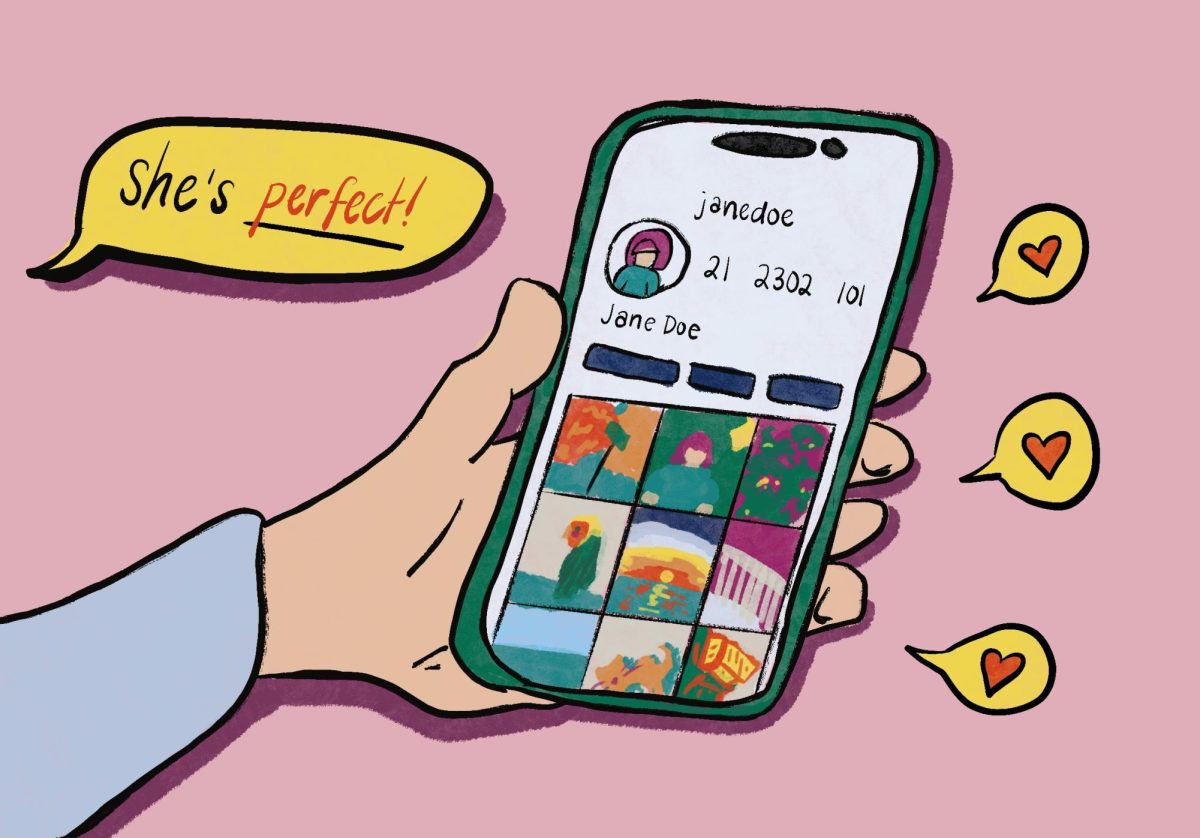Prospective roommates may believe they have found their perfect match on Instagram, only to realize reality doesn’t quite match up with the facade.
People are not who they are on Instagram—at least not entirely.
When I was looking for potential roommates from the hundreds of posts on the UVM 2027 Instagram page, I realized I was only viewing a curated collection of a person’s most enviable moments.
These people were caricatures of themselves, defined by their summer in Italy and a picture-perfect prom night.
Many students, like first-year Holly Snyder have acknowledged the performative nature of Instagram.
“If I meet someone in person, it’s just me. But over Instagram, I can be whoever,” said Snyder.
Instagram has granted our generation the ability to craft our online identities however we want. While freedom of expression is crucial, the truth can become distorted when being influenced by trends and popularity.
The pressure to conform within one of Gen Z’s curated online subcultures, such as granola, clean girl, alt and indie, can lead to a lack of authentic identities on the internet as people are boiled down to caricatures of themselves.
While choosing a potential roommate, I wasn’t making a choice between people—I was making a choice between different online personas. I wanted to know what these people were actually like, and the direct messages were no help.
In a desperate race to find a roommate, every conversation felt like a performance. We were so focused on impressing each other that no one dared to say anything that could hurt their chances.
A conversation would usually carry on for only a couple of days, and eventually, that person would be lost in the void of my Instagram feed for good.
Ultimately, I lost hope and decided to look into going random, hoping the housing survey would grant me a more compatible roommate than Instagram.
I was disappointed to see that UVM’s survey was composed of a few generic questions with a vague selection of answers.
It was weeks before the official roommate selection when I surprisingly got a follow up message from someone I had chatted with months prior.
After realizing we were placed in the same Learning Community, we decided to room together. An immense pressure was taken off my shoulders—my Instagram crusade had finally come to an end.
In my case, everything worked out. We were placed in a triple—with one random roomate—but we all get along like family. However, for many people this was not the case.
“Me and my roommate got along great over Instagram messages, but when we met in person, we realized we were a lot more different than we thought,” said an anonymous first-year student.
People are drawn toward those they assume they will be compatible with, but when authenticity is lost in social media, it’s hard to be sure you’ve found the right match.
When I arrived on campus, I recognized many faces from Instagram. After getting to talk with some of them, I was surprised to find that my expectation of their personality was shattered by reality.
Instagram could be a great way to connect with new people and gain valuable insights into their lives.
However, when using it to find a roommate, a significant cultural shift needs to be made in order for the roommate selection process to be grounded in compatibility, not appearances.














